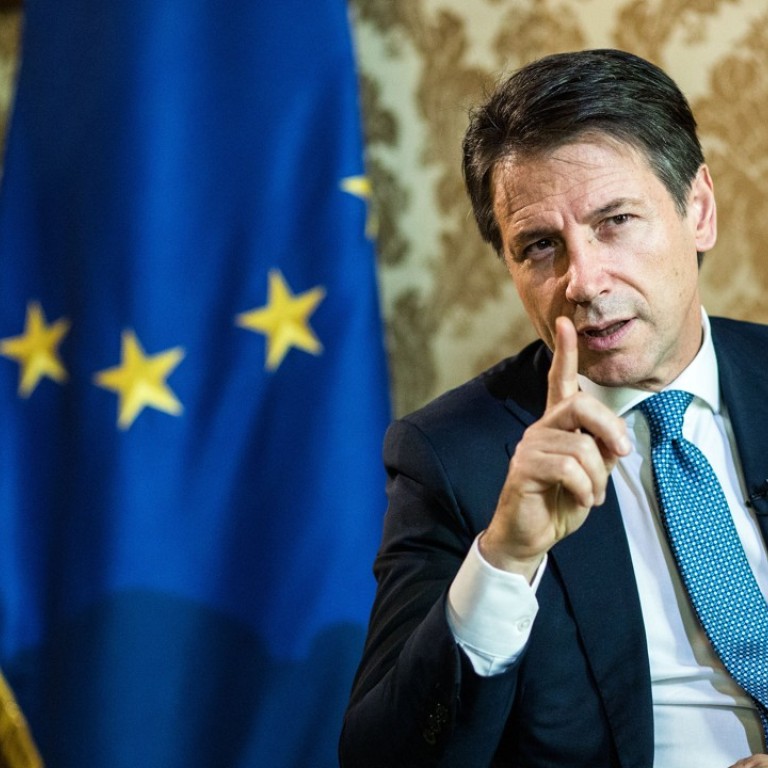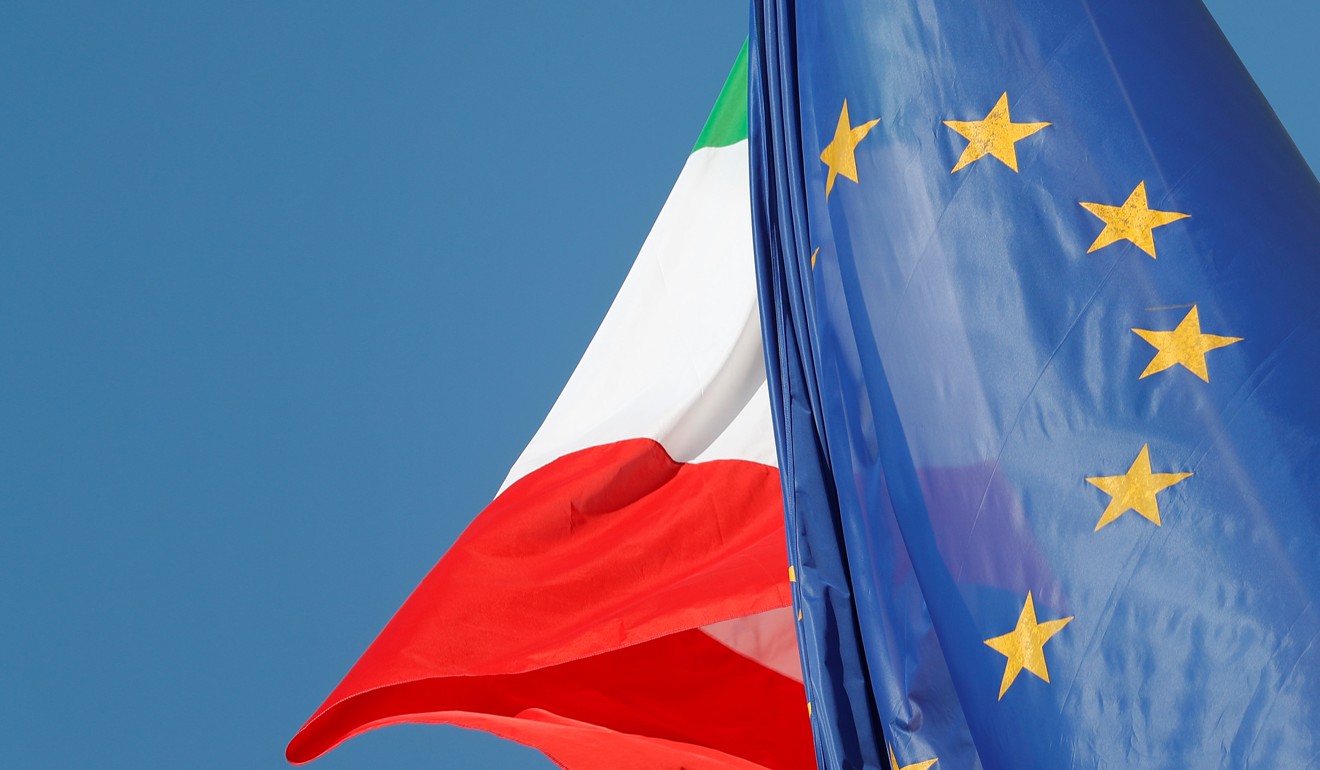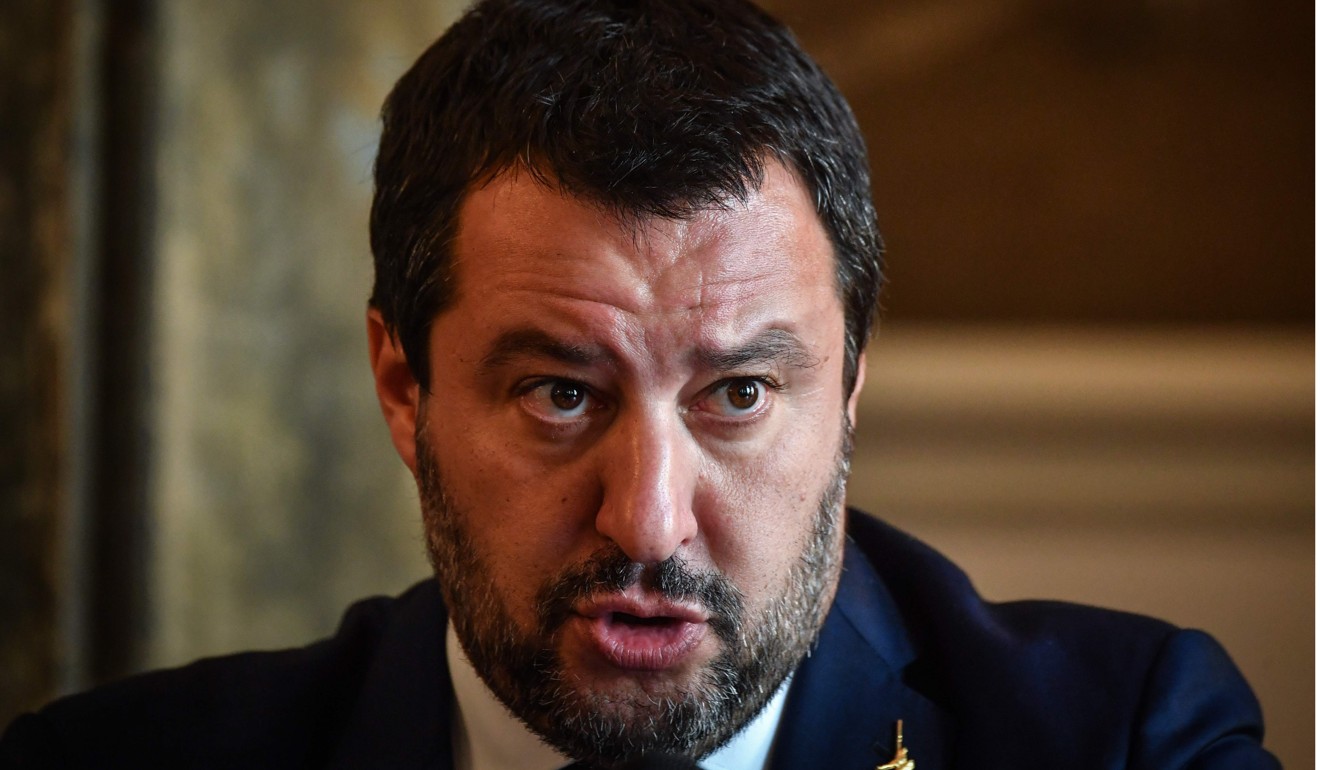
EU rejects Italy’s budget in unprecedented move that could play into Rome’s hands
- Italy’s debt load is the second-highest in Europe, after Greece
- Interior Minister Matteo Salvini was quick to warn the EU to keep its hands off
On Tuesday, the European Union did something it has never done before: it rejected the proposed budget of one of its members.
The European Commission said Italy’s proposal, which would swell the country’s deficit to 2.4 per cent of GDP to fund tax cuts and stronger welfare programmes, posed “unacceptable risks” to Italy and the euro zone.
“We see no alternatives,” European Commission Vice President Valdis Dombrovskis said.
“The ball is now in the court of the Italian government.”
The Italian government now has three weeks to make a choice: it can draw up a more austere budget, or stick to its guns and pay a heavy fine to the EU next year.
So far, Italian leaders have remained defiant. And why not? This is the fight Italy’s populist government, which took power in June, has been waiting for.
That government – a coalition between the anti-establishment Five Star Movement and the far-right League party – has an ambitious but contradictory agenda.
The vaguely left-leaning Five Star Movement won Italy’s impoverished south by promising a generous guaranteed income and pledging to ditch a pension measure that raised the retirement age.
The League took the richer, more industrial north with pledges of big tax cuts and stricter immigration policies.

These things make Italians grow even more irritated
Boosting benefits while slashing taxes is an obvious contradiction, especially since Italy’s economy isn’t growing. But rather than attempting to solve that problem, the coalition chose to write a 2019 budget that included both tax cuts and better welfare benefits, daring the EU to reject it and take the blame.
“The commission is playing right into their hand,” said Federiga Bindi, a political-science professor at the University of Rome Tor Vergata, calling the Italian government’s strategy a win-win.
“If the commission says OK, then [the government] can say, see, we did it,” she said.
“If the commission rejects it, then they can use that to blame the commission.”
Unsurprisingly, the Italian government has framed the EU’s decision as an attack on Italy’s autonomy. “They aren’t attacking a government, but a people,” Matteo Salvini, the interior minister and leader of the League, told reporters on Tuesday.

“These things make Italians grow even more irritated.”
Italian Prime Minister Giuseppe Conte, speaking to reporters as he arrived in Moscow for talks with President Vladimir Putin, said they were ready to argue their case before the commission.
“It’s not an improvised budget, it’s a budget that we have considered, elaborated, we have thought about it a long time,” he said.
“So saying today or tomorrow morning that we are looking at it again would make no sense.”
The government is playing up discontent with the EU’s current leadership, which it blames for economic hardship and the influx of migrants.
The EU, Italian leaders argue, is only looking out for big countries such as Germany and France while ignoring the Southern European countries that feel they are bearing the brunt of both migration and the transition to the euro.
Still, there is little support in Italy for a Brexit-style withdrawal from the bloc, so Italy’s government has tried to praise the idea of an integrated Europe while calling for change.
Bindi described the government’s message as: “We don’t want this Europe. We want a better Europe, a more supportive Europe.”
Ultimately, Italy might have no choice but to play ball. Though the government’s proposed budget deficit is relatively small, the country’s cumulative debt is gigantic – 131.8 per cent of its GDP last year. Interest rates on Italian bonds are at a four-year high, The New York Times reports, and European officials say this new budget could lead to even more significant increases in borrowing costs.
That’s bad news for Italy’s banks, which own much of the country’s debt.
Additional reporting by Associated Press

